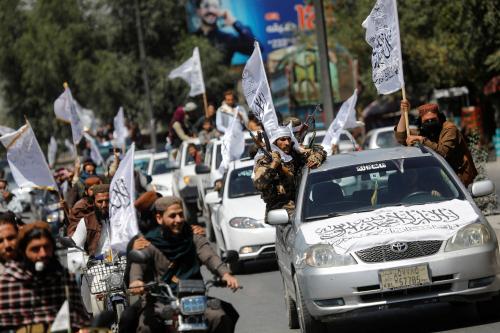

10:00 am EST - 11:00 am EST
Past Event
After the chaotic withdrawal of NATO forces in August, Afghanistan’s future is more uncertain than ever. The Taliban faces unprecedented governance challenges ranging from an economy in tatters to mounting internal security threats even as it seeks to impose strict religious and social rules of conduct on the Afghan people. While the United States does not recognize the Taliban government, practical considerations about the country’s security and humanitarian situation raise the question of what the future of U.S. policy should be, and how — or whether — Washington should engage with the Taliban going forward.
On November 12, Brookings hosted a virtual event to discuss the humanitarian catastrophe in Afghanistan, and the future of U.S. policy there.
Viewers submitted questions via email to [email protected] or on Twitter using #FutureOfAfghanistan.
Panelist





Vanda Felbab-Brown
March 28, 2024

Madiha Afzal
May 5, 2023
2023
Online Only
9:00 am - 10:00 am EDT